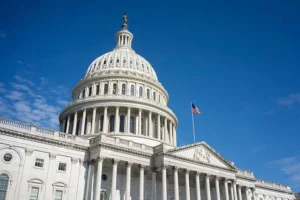Federal funding for Alaska’s 27 public media stations may vanish this week as the US Senate debates a massive rescission request. Former President Donald Trump pushed Congress to cancel billions in already approved spending, including $1 billion for public broadcasting.
The House approved the package with support from Alaska’s Republican Representative Nick Begich, who voted to move the rescission forward. Unless the Senate votes by Friday, the proposal will expire, preserving Alaska’s vital funding for public media.
Senator Lisa Murkowski has repeatedly defended public broadcasting’s value, especially in communities that rely on it for emergency updates. Senator Dan Sullivan acknowledged its importance but hasn’t clearly stated whether he supports the proposed budget rescission.
Last month, Sullivan’s spokesperson Amanda Coyne said the senator believes public radio remains essential, particularly in rural Alaska. Politico reported Sullivan had considered an amendment to shield rural stations, though his team declined to confirm any details.
Meanwhile, Trump warned that he may pull endorsements from Republicans who oppose the proposed budget clawbacks, which would increase pressure on senators. Sullivan, endorsed by Trump in 2020 and up for reelection in 2026, remains publicly silent this week.
Alaska’s public broadcasters have urged listeners to contact lawmakers, warning that losing support would gut essential community services. Eleven Alaska stations receive more than 50% of their funding through Corporation for Public Broadcasting grants, which are critical for daily operations.
In Unalaska, KUCB provides tsunami alerts, volcano warnings, and extreme weather updates, all reliant on federal public radio funding. Ed Ulman, head of Alaska Public Media, said Alaska public radio funding cuts would erase $20 million in statewide economic impact.
Ulman noted that state support remains unlikely, as Governor Dunleavy has consistently vetoed public broadcasting funds since 2019. Public radio leaders stress that a carve-out for Alaska alone would still devastate rural stations nationwide, creating broader ripple effects. Without Senate action, Alaska public radio funding cuts could end essential services for hundreds of thousands in remote regions.











